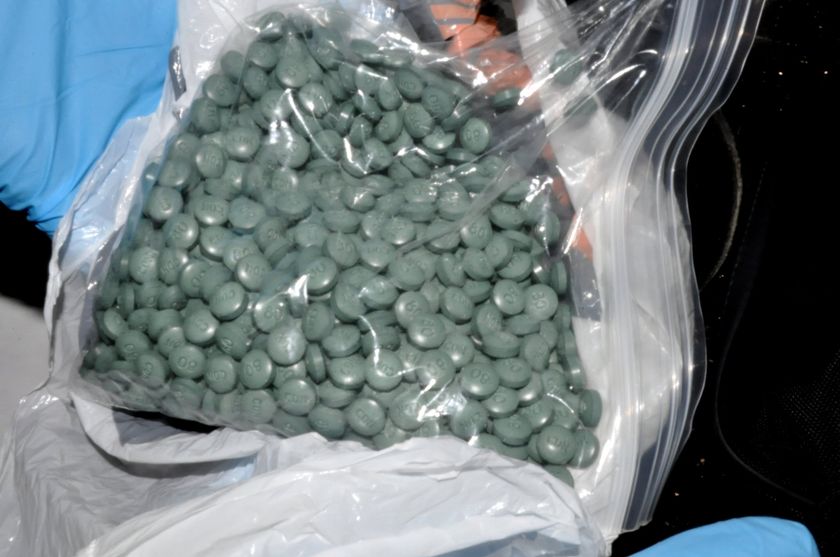Brantford police say they believe four suspected overdose deaths Dec. 10 are the result of drugs being mixed with fentanyl.
Calling four suspected fentanyl-related deaths on Friday tragic, Brantford Mayor Kevin Davis said the community must step up its efforts to combat the opioid crisis.
“It’s very alarming,” said Davis on Monday of the suspected overdoses.
Police would release no additional information on Monday about those who died or the circumstances surrounding their deaths.
Investigators, who are awaiting the results of post-mortems, say they are still seeking information about the incidents.
On Saturday, police said they believe the overdoses are the result of drugs being mixed with suspected fentanyl, a powerful painkiller that has made its way into the illicit drug market as a cheap product for dealers to sell, and a powerful high for addicts to chase.
The deaths echo a cluster of opioid overdoses in the community on a weekend last March when three people died of drug overdoses and first responders rushed three more drug-users to hospital for treatment.
According to numbers compiled by the Brant County Health Unit, 33 people are believed to have died of opioid overdoses in the first 11 months of 2019.
That’s a significant jump from 2018 when 21 people died of opioid overdoses. There were 25 such deaths in 2017.
“It’s not just us,” said Davis. “It underscores what’s happening across the whole country.”
Canada is in the midst of an opioid crisis. Close to 14,000 Canadians have been killed by opioids and more than 17,000 have been hospitalized for opioid-related poisoning over the last four years, according to data released in December by the Public Health Agency of Canada.
Opioids are a class of drugs that includes heroin, certain prescription painkillers and illicit fentanyl. The drugs can cause respiratory depression, unconsciousness and death. Giving naloxone by needle or nasal spray adapter can reverse the effects of the drugs.
Following a spate of opioid overdoses in 2017, the city launched the Brantford-Brant Community Drug Strategy, which aims to reduce or delay substance use through a range of efforts, including harm reduction and education and ensuring people have timely access to services.
Although he said it’s disappointing that the number of overdoses has increased since the implementation of the strategy, Davis said without it the statistics would likely be worse.
“It’s not something that can be solved in a year,” he said. “It’s a generational issue. “It could be three, four, five years before we see the stats declining. It’s a long-term effort.”
Davis cited the opening of the Rapid Access Addiction Medicine Clinic in 2018, and a residential substance withdrawal and treatment centre, which opened in September, as big steps in fighting the local drug crisis.
The mayor is promoting other initiatives, including an improved “early warning network” that would issue alerts when toxic drugs come into the community; a more robust youth intervention program that would provide young males, in particular, with mentoring and “good lifestyle options;” and a court diversion program that would give offenders the option of rehabilitation rather than criminal punishment.
Davis said he has also seen benefits in other municipalities that have safe consumption and treatment sites.
“As a community we need to do more.”
On Monday, the Grand River Community Health Centre confirmed is developing plans for a safe consumption and treatment site in Brantford. But executive director Peter Szota said a lot of work and community consultation are required to make the site a reality.
“We have done a lot of preliminary work with the idea of applying to the province for a safe consumption and treatment site,” Szota said. “But the process is lengthy and community consultation is a big part of that.
“We plan on having a fulsome and robust consultation process.”
He said the centre has not identified possible locations for the site.
But the centre, like many other organizations including the Brant County Health Unit and St. Leonard’s Community Services, believes a safe consumption and treatment site is needed, Szota said.
He has toured existing safe consumption sites in Ontario, including a visit to the one in Guelph with Davis. And he has spoken with those who operate a site in London, Ont., and visited one in Vancouver.
“I think it’s important to understand that a safe consumption and treatment site isn’t a panacea for the opioid crisis,” Szota said. “They can’t solve the problem on their own.
“They can be effective when they’re part of an overall strategy.”
The city developed and implemented a local drug strategy following a spate of opioid overdoses in the community in 2017. The strategy aims to reduce or delay substance abuse through a range of initiatives including harm reduction and education.
Funded by the Ministry of Health and Long-Term Care, the community health centre at 363 Colborne St., in Brantford is a charitable non-profit organization that provides community-based primary health care, health promotion and community development programs in Brantford and Brant County.
The provincial government provides funding to supervised consumption sites.
Public health officials are advising those who use illicit drugs to never use alone and to exercise caution if using a new substance.
They’re also advising users to carry naloxone, a medication that temporarily reverses the effects of an overdose. Naloxone kits are available at local pharmacies and the health unit at 194 Terrace Hill Street.
